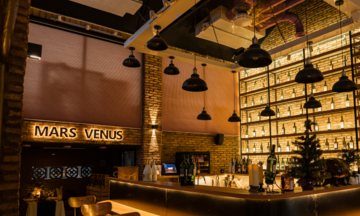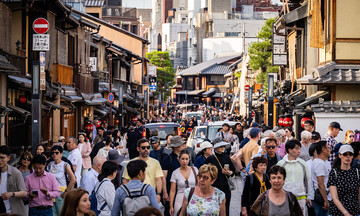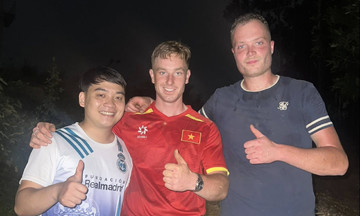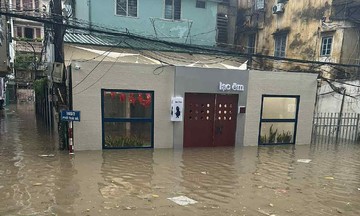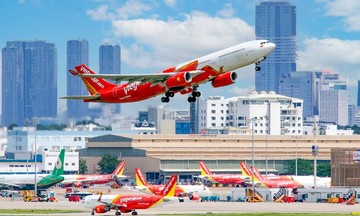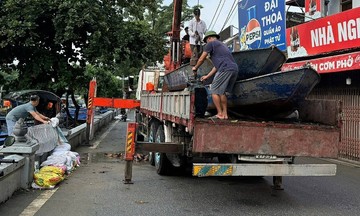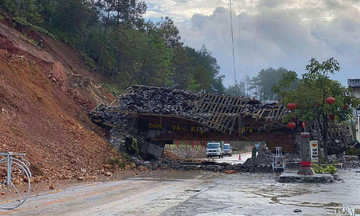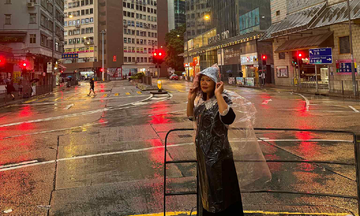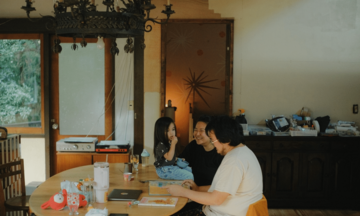Tour operator Huntin' Fool has ignited controversy by offering $43,000 polar bear hunts in Canada's Arctic region for 2026, with an added opportunity to hunt walruses. Images of smiling tourists posing with polar bear carcasses have appeared on the company's website.
"Prepare for a unique experience on a hunt in one of the planet's last truly wild areas," the company's announcement reads. "Guided by seasoned native professionals, you won’t miss a beat as you explore the Arctic."
The hunts are conducted using boats, snowmobiles, or dog sleds. Once a bear is spotted, hunters and guides approach on foot. Hunters are equipped with high-powered rifles and can pay an additional $5,000 to keep the bear's hide and skull.
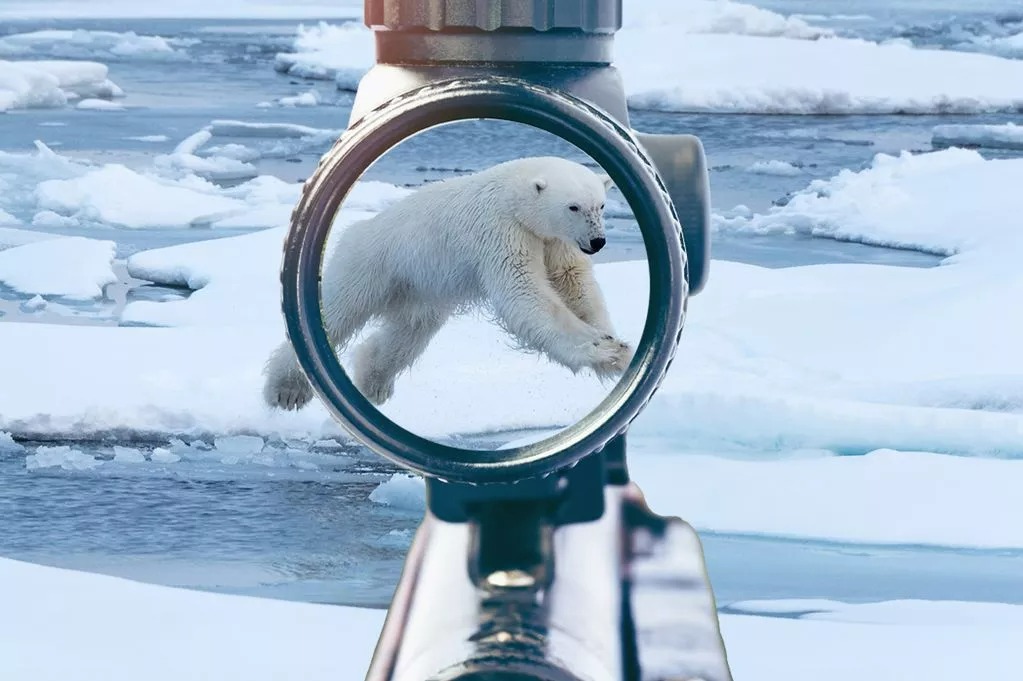 |
Illustration of a hunter aiming at a polar bear. Photo: Daily Star |
Illustration of a hunter aiming at a polar bear. Photo: Daily Star
The company has operated in the North for over 25 years and claims to have "built strong relationships with the Indigenous community." In addition to polar bears, they organize hunts for caribou, muskoxen, Arctic grizzly bears, wolves, and wolverines.
People for the Ethical Treatment of Animals (PETA) has urged the British government to ban British hunters from bringing animal parts home from trophy hunts. Mimi Bekhechi, PETA's Vice President for the UK and Europe, stated that only individuals with disturbed minds would engage in such activities. She called trophy hunting "bloodlust" and urged the UK government to close legal loopholes to prevent it.
In May, the issue of polar bear hunting tourism also sparked controversy when Suha Derbent and Murat Uslu, two photographers from Turkey, posted a video condemning the practice.
A video posted by the two tourists upon arriving in Arctic Bay, Nunavut, Canada, containing negative comments about polar bear hunting, caused outrage among the Inuit community. The tourists criticized sport hunting, believing it to be an unacceptable injustice.
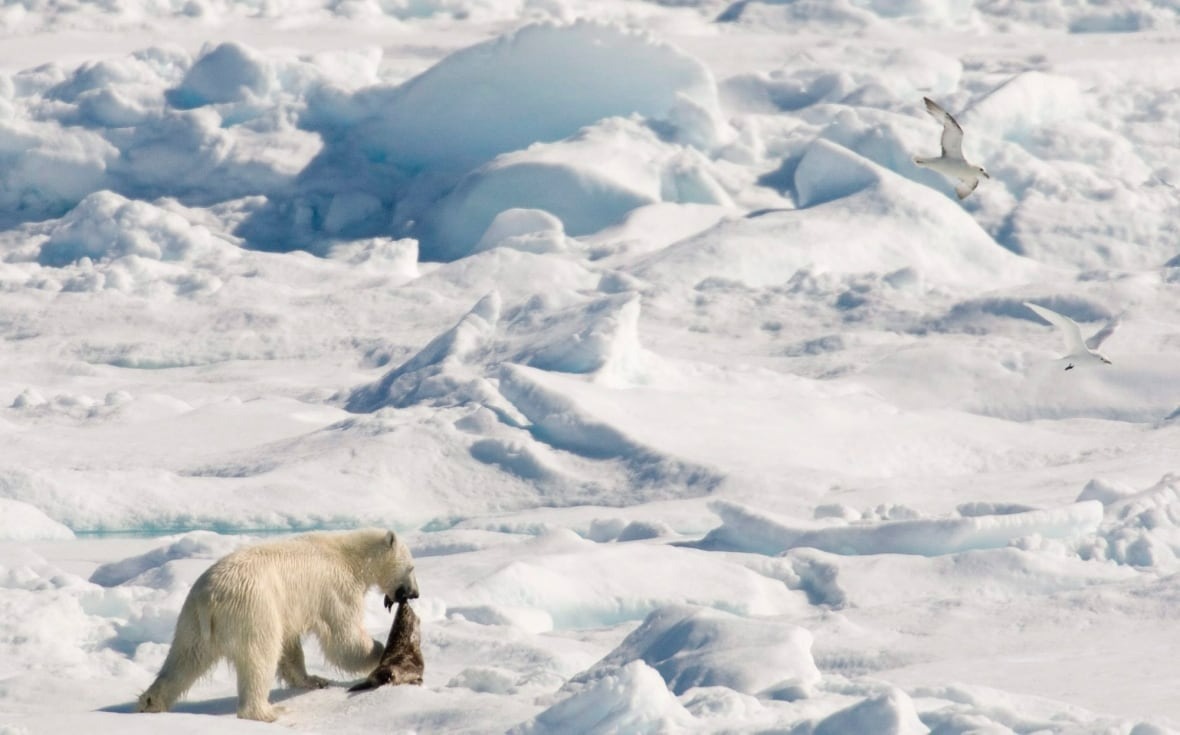 |
A polar bear hunts in Nunavut. Photo: CBC |
A polar bear hunts in Nunavut. Photo: CBC
In Nunavut, sport hunting is strictly regulated through a licensing system, with a limited number of polar bear hunting tags allocated annually to local Hunters and Trappers Organizations. These organizations decide whether or not to use the tags for sport hunting.
In an interview with CBC News upon leaving Arctic Bay, Derbent explained that they were prevented from approaching the ice edge for photography due to the presence of sport hunters. As a result, the photographers were unable to capture photos of polar bears as planned. He also apologized to the Inuit people, stating they had no intention of offending their culture.
Nooks Lindell, an Indigenous resident, stated that they don't need outsiders telling them how to live. Lindell emphasized that the Inuit have lived in harmony with nature for generations and that the licensing system helps maintain a stable polar bear population.
"If there's a problem, it's for the Inuit to deal with, not outsiders," he said.
Paul Irngaut, Vice President of Nunavut Tunngavik Inc. (NTI), the legal representative organization for the Inuit in Nunavut, explained that sport hunting benefits the community. The entire community benefits, from those who sew clothing for hunters to the sharing of meat. He also cautioned communities to be wary of tourists and urged them to do their research before making comments.
Chris Mitchell, head of Arctic Bay Adventures, noted that local regulations prohibit tourists from approaching hunting areas. When the two photographers attempted to approach the ice edge, they were asked to leave. After receiving backlash from the Indigenous community, the photographers removed the video.
Hoai Anh (According to Express, CBC)



